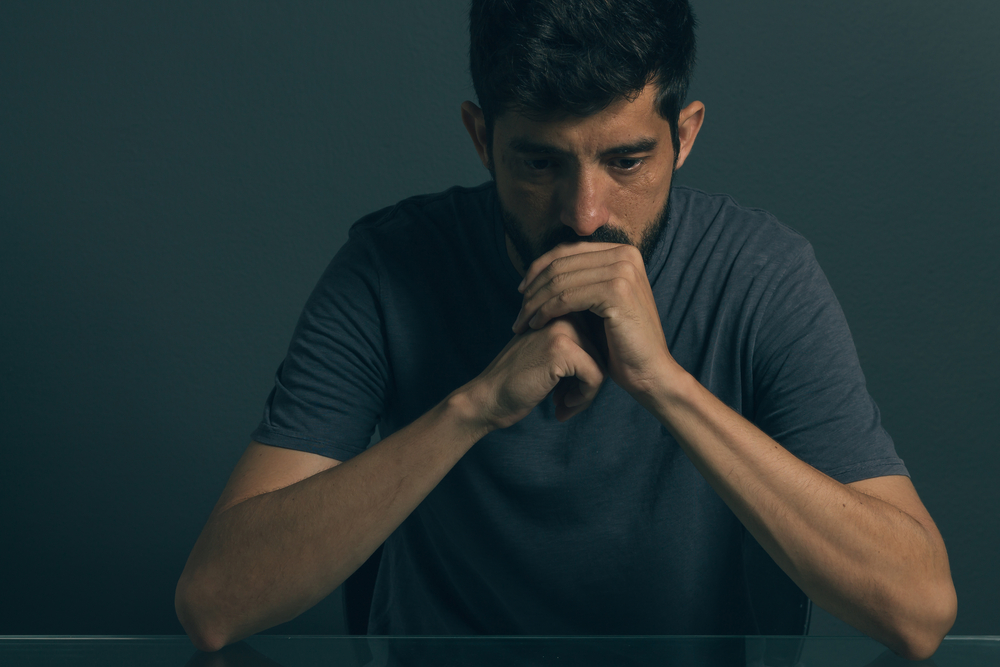Many people experience some form of childhood trauma in their lifetime. Some people undergo physical trauma such as abuse, neglect, and even malnourishment in their childhood. Others experience more emotional trauma such as verbal abuse, manipulation, and witnessing hardships. Many people don’t realize that their childhoods are truly traumatic until they get into adulthood, looking back and seeing the things they went through as kids. Unfortunately, by then, many adults adopt coping mechanisms that are rather unhealthy simply to deal with the lasting trauma they endured. Here are some of them.
1. Bottling it all up

Bottling up trauma is something that many people do to cope. Trying to push it down and forget about it is something a lot of people try to do, but truly fail. Most of the time, when you try to bottle up your feelings and your past, it explodes eventually. This can come out in a variety of ways, but it always ends up harming the person and those around them—especially their families or their parents.
2. Using alcohol to forget

Some people who experience childhood trauma like to drink to numb their pain or to forget. Drinking may seem like a quick way to feel better, but in the end, it can truly hurt those who are going through trauma and reliving those episodes. Drinking is only a quick fix but can become a slippery slope rather easily. People can develop a drinking problem quickly, especially if they believe that they feel better when they drink.
3. Projecting onto everyone around them

There’s always someone who is at fault when someone goes through childhood trauma, and it’s never truly the child. However, it’s not healthy to run around constantly blaming everyone else and projecting that onto other people who may not have even been involved. While it is unfortunate that these people suffered in such a terrible way at a young age, it cannot be solved or fixed by hurting other people.
4. Getting angry over the past

When someone experiences trauma, it is easy for things to trigger it and bring up old feelings. Many people can get angry and bitter in response to these feelings coming up. However, dealing with feelings in a healthy way is important—such as in therapy—rather than reverting to anger and hatred. It’s okay to be unhappy with what happened, but it’s not okay to be angry and take that anger out on other people.
5. Self-harming

One of the hardest and most dangerous ways that people cope with trauma is to self-harm. Many hurt themselves in order for their pain to feel bigger than the pain of the trauma that they still feel. However, self-harm is incredibly dangerous and a toxic cycle. It is important to immediately seek help and get the services that one needs if self-harm is ever a thought or desire.
6. Binge eating

Studies have shown that many people who experience trauma have an unhealthy relationship with food. When they feel unhappy or upset, they will try to mask it and solve their emotional distress by eating something delicious or binge eating to distract themselves. While the food may taste delicious, it can be unhealthy and hurt the person’s body physically. Many people develop health issues due to poor diets, and can put on more weight than they’d like.
7. Isolating themselves

Isolation is one way people cope with childhood trauma. The idea behind this is that many children felt as though they were the problem, or even a burden, on their families when they were young. This is the reason for whatever trauma they endured, and in response, they isolate themselves to avoid burdening other people, too.
8. Sleeping around

Hypersexuality is a coping mechanism by which many emotionally traumatized people handle love. Going through their childhood with confusing emotions surrounding love and affection, it can be difficult for these people to understand healthy relationships and real love. Many mistake physical intimacy for love, leading to an increase in partners and activity.
9. Drug usage

Like drinking, drugs can mask the pain and the struggle that comes with trauma. Some people choose to smoke, while other people use pills to numb their pain and forget. Unless it’s a legitimate medical prescription, it can be incredibly dangerous to mess around with drugs. In addition to addiction, it can be a slippery slope and lead to overdose and death.
10. Lying

When children feel as though they have done something wrong, they may lie to get out of the situation at hand. When people have childhood trauma, they feel as though they wrong someone, somewhere to deserve that kind of treatment. Many adults will begin to lie about everything and anything, so that they can ensure they are always making everyone else happy. If they do this, they won’t suffer the way that they once did.
11. Daydreaming to escape reality

Instead of working and staying on the right track, those who are stuck in a trauma cycle may daydream all day to escape their pain and frustrations. While daydreaming may seem innocent, it can hurt people who need the time to be productive—at work, with the kids, and with friends. It’s important to be present in life as much as possible.
12. Mirroring other people

Those who experience childhood trauma want to change and forget who they once were. When they meet new people, they begin to mirror their personalities and pick up things that they like about other people. The idea is to “shape-shift,” to be able to start over fresh and new every once in a while. The more they start over, the more they are trying to erase the trauma that haunts them.
13. Starving themselves and avoiding food

Some people binge eat, other people starve themselves. When stress and anxiety are at an all-time high, it can be difficult and challenging to have an appetite and be hungry. Stress and the “fight or flight” signals that are sent to the brain can interfere with hunger and desire for food. Some people end up skipping whole meals and dropping significant weight.
14. People-pleasing

Saying “yes” to everyone may keep them happy, if only for a minute. Those who have extreme childhood trauma want to have everyone else like them because they feel as though they disappointed someone else in their life. To cope with this, people with childhood trauma often become people-pleasers, Verywell Mind explains, feeling that if they can keep some people happy, they can also be happy inside.
15. Avoiding relationships

Some who experience trauma avoid any friendships, but more specifically avoid romantic relationships. Having a ton of baggage and skeletons in their closet turns them off from love overall. These people want to be alone in order to ensure they won’t reflect their pain and trauma on to other people. Unfortunately, this ends up isolating them even further, and preventing them from enjoying happy, healthy connections.
Enjoy this piece? Give it a like and follow PsychLove on MSN for more!



